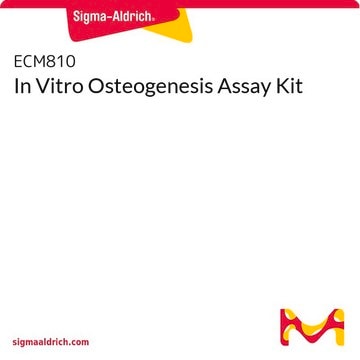MAK482
Lipase Assay Kit
sufficient for 100 colorimetric tests
Synonym(s):
Lipase Activity Assay Kit
Sign Into View Organizational & Contract Pricing
All Photos(1)
About This Item
UNSPSC Code:
12352204
NACRES:
NA.84
Recommended Products
Quality Level
detection method
colorimetric
relevant disease(s)
genitourinary disorders; gastrointestinal diseases; cancer
shipped in
ambient
storage temp.
2-8°C
Related Categories
General description
Lipase catalyzes the hydrolysis of ester bonds on the glycerol backbone of a lipid substrate. In humans, pancreatic lipase is the key enzyme responsible for breaking down fats in the digestive system by converting triglycerides to monoglycerides and free fatty acids. Human pancreatic lipase and its related protein 2 are the main lipases secreted by the pancreas. In acute pancreatitis, lipase levels can rise 5 to 10-fold within 24 to 48 hours. Increased activities have also been associated with pancreatic duct obstruction, pancreatic cancer, kidney disease, salivary gland inflammation, bowel obstruction, and other pancreatic diseases. Decreased levels may indicate permanent damage to lipase-producing cells in the pancreas.
Features and Benefits
- The linear detection range of the kit is 40 to 1600 U/L lipase
Suitability
The kit is suitable for detecting lipase activity in serum, plasma, saliva, urine and other biological samples.
Principle
The Lipase Assay Kit is based on an improved Dimercaptopropanol tributyrate (BALB) method, in which SH groups formed from lipase cleavage of BALB react with 5,5′-dithiobis (2-nitrobenzoic acid) (DTNB) to form a yellow-colored product. The color intensity, measured at 412 nm, is proportionate to the enzyme activity in the sample.
Signal Word
Danger
Hazard Statements
Precautionary Statements
Hazard Classifications
Acute Tox. 4 Inhalation - Acute Tox. 4 Oral - Aquatic Chronic 3 - Eye Dam. 1 - Flam. Liq. 2 - Skin Irrit. 2 - STOT SE 3
Target Organs
Respiratory system
Storage Class Code
3 - Flammable liquids
WGK
WGK 3
Certificates of Analysis (COA)
Search for Certificates of Analysis (COA) by entering the products Lot/Batch Number. Lot and Batch Numbers can be found on a product’s label following the words ‘Lot’ or ‘Batch’.
Already Own This Product?
Find documentation for the products that you have recently purchased in the Document Library.
Our team of scientists has experience in all areas of research including Life Science, Material Science, Chemical Synthesis, Chromatography, Analytical and many others.
Contact Technical Service







